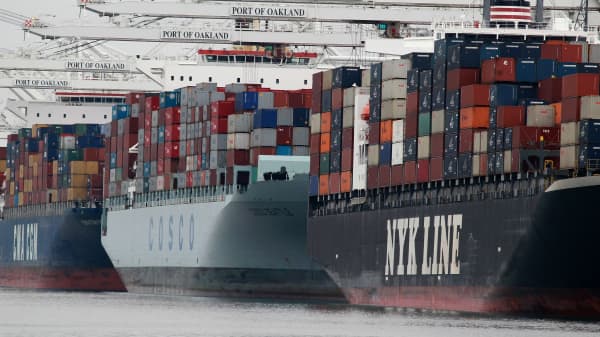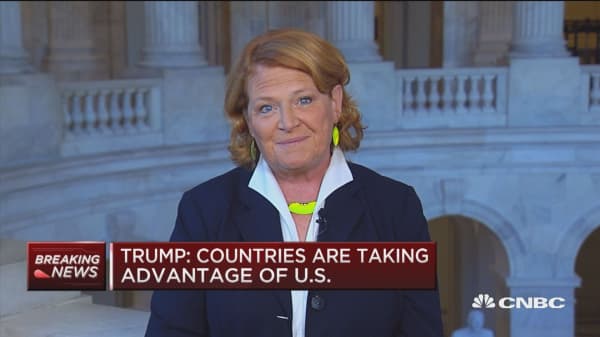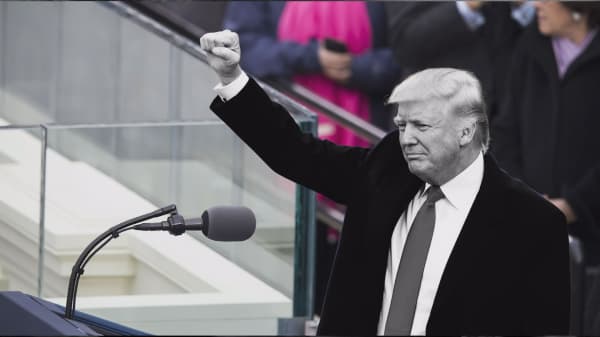By slapping new tariffs on Chinese goods Monday, President Donald Trump ratcheted up a policy that has so far failed to resonate with voters.
The president escalated a trade war with China by slapping 10 percent duties on $200 billion of Chinese products. The levies will rise to 25 percent at the end of the year. Beijing said Tuesday that it will retaliate by putting tariffs on $60 billion worth of U.S. goods next week.
Trump won the White House in 2016 partly on a pledge to revise free trade deals to protect American workers — a promise that resonates with many Republicans and Democrats alike. But tariffs, Trump's mechanism to push trading partners to strike new deals, have more voters than not worried about economic damage and more expensive goods, according to polling.
An ongoing and widening trade war poses political risks for Republicans as they try to stop Democrats from taking House and Senate majorities in November's midterm elections. Trump seems aware of the dangers, as China has retaliated against crops and other American products made in parts of the country that supported the president.
On Tuesday, Trump said China is "actively trying to impact and change our election by attacking our farmers, ranchers and industrial workers." In tweets, he said those Americans "are great patriots" and threatened "great and fast economic retaliation against China" if it targets those industries. The Trump administration has also promised $12 billion in aid to farmers punished by lower prices caused by tariffs.
Trump tweet 1
Trump tweet 2
Trump promised Monday to impose tariffs on an additional $267 billion in Chinese goods if Beijing hits back in any way. Another escalation could bring even more political risk for the president's party.
A quarter of registered voters nationally think raising tariffs will do more to protect American jobs and help the U.S. economy, according to an NBC News/Wall Street Journal poll in July. Meanwhile, about half of registered voters said duties will do more to raise the costs of goods or hurt the economy. Sixteen percent responded that levies will not have much of an effect.







